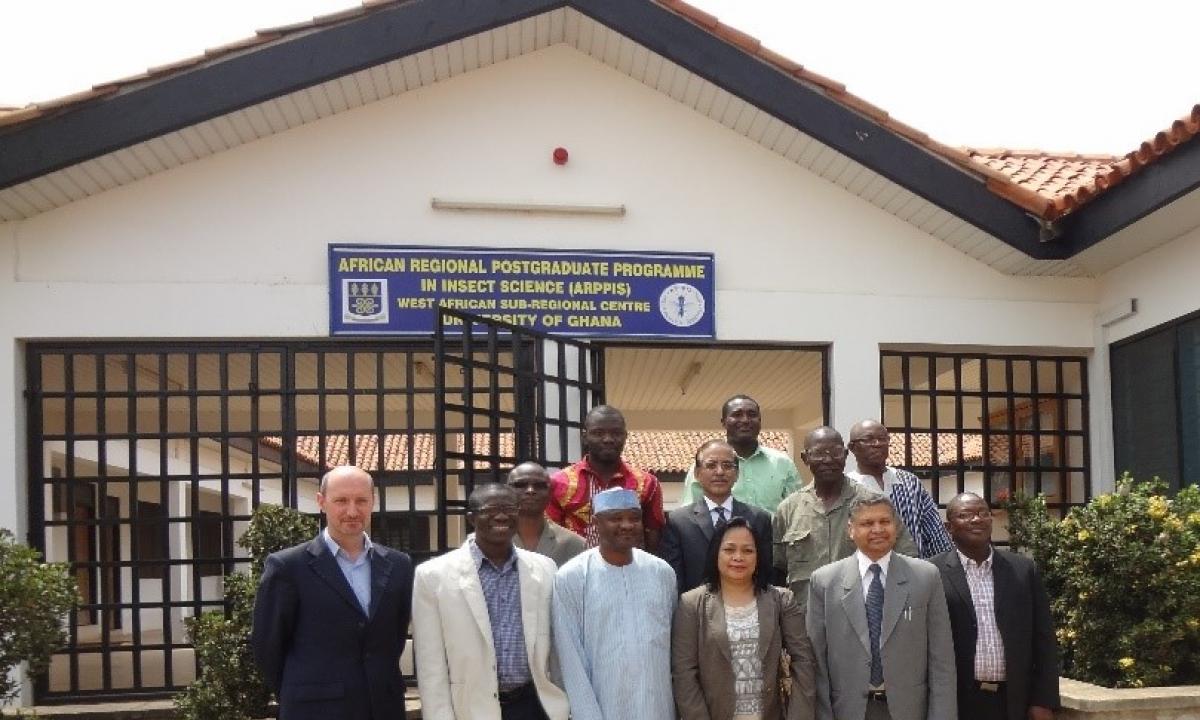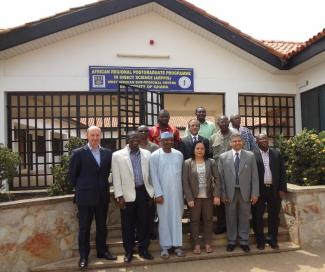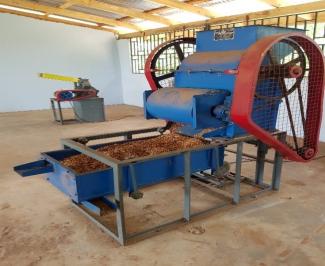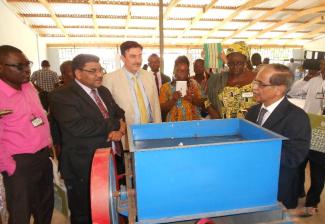
In November 2007, the Regional Network on Pesticides for Asia and the Pacific (RENPAP) presented an Indian model of neem-derived pesticide technology, which uses the neem kernel aqueous extract as an eco-friendly biopesticide. Neem (Azadirachta indica) is an evergreen tree native to the Indian subcontinent that can grow in almost all types of soils and agroclimatic conditions. It is now widespread in many African countries. In 1989, the United States National Research Council classified it as a “tree for solving global problems”, given that its bearing chemicals could serve as environmentally friendly pesticides. Other uses of the neem tree also have the potential to generate additional income and employment opportunities in rural areas.
The project aimed to promote the use and development of production capacity for eco-friendly, cost-effective pesticides derived from neem kernels, focusing on neem-shed development, technology transfer, South-South institutional linkages, skill enhancement, training activities in villages to promote rural development, agribusiness and microindustry promotion, poverty alleviation and employment generation. It also aimed to strengthen environmental protections and eliminate hazards by providing a low-cost, bio-efficient alternative to toxic POPs and chemical pesticides.
Producing enough food for their growing populations remains a challenge for many developing countries. In order to meet the growing demand for food many countries resort to increasing crop yield production per hectare, a practice that is heavily reliant on an increased use of fertilizers and pesticides. Current methods of employing those chemicals often result in soil, water and food contamination and endanger human health. UNIDO is therefore assisting its Member States in developing, producing and applying cost-effective, eco-friendly alternatives to persistent organic pollutants (POP).
The project’s approach consisted of establishing a national coordination arrangement, providing training for stakeholders and transferring technology to three national technical partners in Ghana, Nigeria and Sierra Leone, supported by the Republic of India.
Within the framework of this project, field trials and phytotoxicity studies were conducted, crop-specific bioefficacy data was generated and three neem centres with production demonstration plants were established. To provide hands-on practical experiences, neem-derived pesticides were demonstrated on various crops in farmers' fields. The equipment, materials and neem centres necessary to train farmers and promote neem-derived pesticides were provided. Awareness-raising and training programmes with field demonstrations for farming communities were conducted as well. Mechanized demonstration plants for the production of neem-derived pesticides were also established. The machinery, including depulpers, decorticators, crushers and storage facilities, was purchased, installed and tested. In addition, machine operators were trained.
The project has been used as a model for UNIDO and Global Environment Facility regional projects in the Common Market for Eastern and Southern Africa and the Southern African Development Community. These projects aim to strengthen capacity and provide technical assistance for national implementation plans under the Stockholm Convention on Persistent Organic Pollutants in least developed countries in Africa. As a result, a regional strategy was developed for the production and application of neem-based and other biopesticides. The project could be replicated and scaled up in various African countries.


